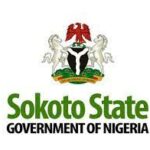Many residents of Sokoto State have resorted to traditional and Islamic medicine as the cost of treatment in hospitals skyrocketed.
Findings revealed that some patients who were out on month-long treatment had to stop half-way because of the exorbitant cost of drugs.
“Many patients have died because they could not continue with their treatment as a result of the high cost of drugs,” a medical practitioner who sought anonymity told our reporter.
There were others who also complained of counterfeit drugs which were not effective.
Tinubu: FG determined to achieve food sufficiency
FG pledges to fund startups in advancing AI research
Malam Aminu Saleh, a resident of Kalambaina in Wamakko Local Government Area told our reporter that people now patronise traditional medicine more than before because of their affordability and effectiveness.
He said another reason was that traditional medicine practitioners have a better way of entertaining their patients and rebuilding their hope of getting cured.
He said, “I have a daughter who was sick. We took her to the hospital, the doctor recommended 30 different tests, but we were able to do only 29 before she was put on drugs for almost two months.
“She took her drugs consistently but nothing changed. We were afraid of losing her based on the impression given to us by the doctor.
“But when we took her to an Islamic medicine practitioner, he gave us some Islamic medicine after examining her, she took it for one month and the rest is history. She is now hale and hearty.
“Their services are very efficient and effective and they use nice words in comforting their patients.”
A resident of Tangaza in Tangaza Local Government Area of the state, Bello Muhammad, noted that there was this belief among the people that orthodox drugs only provide temporary cure.
“And the high cost of orthodox treatment also makes people turn towards alternative medicine despite sustained campaigns by medical practitioners that they have side effects because they are not regulated.
“But let me share my experience with you. There was a time my little daughter was suffering from vaginal infection. We tried several anti-bacteria but it did not go. Then a friend advised me to take her to one traditional medicine practitioner who is also a policeman.
“I went to him and he gave me a gallon filled with a concoction for bathing and oral use. He charged us only N500.
“After using the medicine for three days, the infection disappeared. She never complained of itches or rashes again. What these people need is just little training and sensitisation on how best to package their drugs and regulate their dosages. And this can only be done when the government recognises them the way other countries do,” he said.
Sarkin Askan Sifawa, Isa Abubakar Kwado, a traditional medicine practitioner, revealed that over 50 persons with different ailments consult him every day.
“Right now, I have many patients queuing to see me. I can give you 20 of them to talk to. So, people are now coming back to herbs because they cannot afford drugs.
“Just imagine, yesterday one boy sent for a card of paracetamol. Do you know how much it is now? It is N250. Something that we had been buying N50 and N100. We can cure all these illnesses that require surgery, including kidney problems at a far lesser cost.
“If government will support us, provide an agency that will regulate our activities in order to checkmate quackery among us and also train our members on packaging, I am sure it will save a lot of money being spent on medical tourism,” he said.
The chairman of Traditional Medicine Practitioners in Sokoto, Malam Hamisu Abdullahi, lamented that people were brainwashed by the western world to see natural medicines as inferior with a lot of side effects whereas it was the same ingredients being used in manufacturing the orthodox drugs.
The co-sponsor of the Traditional and Alternative Medicine Bill and former member, representing Bodinga-Dange Shuni-Tureta federal constituency, Balarabe Kakale Shuni, believes that traditional medicine practitioners have a very important role in promoting good health in the country.
Speaking on the bill, he said, “We have a huge japa syndrome. A large number of doctors, pharmacists, nurses are leaving the country. There is a huge gap in personnel and we are also having a huge gap in pharmaceutical production with multinational pharmaceutical companies closing up and leaving the country. And then skyrocketing prices of drugs due to mass inflation.
“We are having a crisis of people not being able to afford drugs and healthcare services. We sat down with professors and stakeholders in traditional complementary medicine and realised they have a huge role to play in offering services that are effective as well as quality medicine.
“The main issue now is how we can tap this sector which has been given prominence in all parts of the world, including by the World Health Organisation (WHO).
“WHO has recognised alternative and complementary medicine. There is a charter that expressively recognises the contribution of this section of medicine in healthcare promotion, health prevention and even cure.
“Thankfully, when we were at the National Assembly, we worked hard with the Ministry of Health and the Director, Traditional Complementary Medicine, Pharmacist Zainab Sheriff, who had been able to get the federal government approval for an executive bill from the Federal Executive Council on Traditional Complementary and Alternative Medicine Council which was sent to the National Assembly and thereafter to President Buhari. Unfortunately, it was not approved.
“So, the bill has been returned to the National Assembly, and is being recommitted. So, we are still following this very important bill that is going to reform and revolutionise traditional and complementary medicine with all stakeholders.”
He further said, “There is a lot of good in this sector of medicine. The main thing is to remove the bad component and all that you have been hearing about; quackery, lack of dosage, contamination, etc. And then emphasise and strengthen the good in the context of the current economic crisis, so that people can achieve accessible and affordable drugs and remedies before diseases become complicated.
“And If you remember very well during my tenure as Commissioner of Health, we worked closely with Sarkin Asking, Sarkin Musulmi and Sarkin Wanzamai on their expertise and grassroot relationship with child birth and naming ceremonies.
“They even have the statistics of the number of babies born in Sokoto at that time. We had about 13,000 babies every month. They have a good tracking system of all the babies born and we were able to use that to improve immunisation coverage in Sokoto State from 3% to 32% when we were fighting against polio and measles. And Sokoto won a lot of accolades and awards.”
He called on the federal government to give alternative medicine practitioners a chance. “We are also calling on the National Assembly members to please expedite the passage of that bill and to get it to President Bola Tinubu to sign into law,” Kakale who is a trained radiologist said.
However, Dr Bello Arkilla of the Department of Community Health, Usmanu Danfodiyo University, Sokoto, discouraged people from using traditional medicine because it causes delay in seeking the right medical attention.
He also held that it distorts the treatment schedule and even leads to complications.
“The drivers of this business are for economic gains. Go to the herbs market in Sokoto and see how the business is booming. And many of the practitioners know nothing about the medicine. People patronise them because of poverty and ignorance of their side effects,” he said.
In an interview with our reporter, Arkilla recalled that a research conducted recently showed adulteration of herbal medicine with orthodox medicine in Sokoto.
“The current practice as it is today is not well standardised. There is no proper regulation of the herbal medicine production, marketing and consumption in Nigeria.
“This gives room for fraudulent practices that often endanger the lives of people taking these medicines, one of which is the addition of undeclared orthodox drugs in the herbal preparations,” he said.

 Join Daily Trust WhatsApp Community For Quick Access To News and Happenings Around You.
Join Daily Trust WhatsApp Community For Quick Access To News and Happenings Around You.


